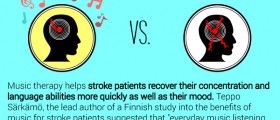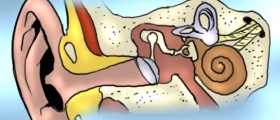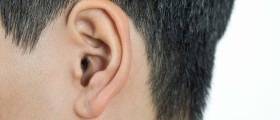
Hearing is the ability to perceive the sound. This is possible by detecting vibrations through a sensory organ such as the ear. Hearing is just one of five senses, which provide inputs for perception.
Hearing impairment
Hearing impairment occurs anytime when the individual’s ability to detect certain frequencies of sound is completely or partially impaired. Some people are born with hearing impairment while the others develop this disability gradually. It is estimated that 12 percent of children aged 6–19 years have permanent hearing damage from excessive noise exposure. Losing the capacity to hear can have severe social consequences. If it happens before the language acquisition, it may lead to delayed social development and rejection by the peers. If the hearing loss occurs after the development of language and skills it is easier to adapt to the new lifestyle using the hearing aids, developing speech-reading skills and learning sign language.
Causes of hearing impairment
It is estimated that one-third of Americans between the ages of 65 and 75, and almost half of those older than 75 have some degree of hearing impairment.
Hereditary and chronic exposure to loud noises are the main factors for hearing impairment in most of the cases. In some other cases, the simple reason such as the earwax blockage, can affect the normal hearing. The earwax builds up gradually in the ear canal, blocking the way for conduction of sound waves. This cause may affect the hearing among people of all ages.
For most of the affected people, the reason behind the hearing loss is the severe damage to the inner ear. This normally happens in the process of aging or as a result of prolonged exposure to very loud noises. The noise can damage the hairs or nerve cells in the cochlea that send sound signals to the brain, affecting the individual’s hearing capacity.
In rare cases, ear infection or abnormal bone growths or tumors of the outer or middle ear can affect the hearing capacity and lead to hearing impairment. Physical trauma to the ear or to the head can make people more vulnerable to hearing loss or tinnitus. Tinnitus is described as the constant ringing in the ears or the perception of sound in the absence of corresponding external sound.
Some medications can also cause irreversible damage to the ear, especially amino glycosides. Hearing impairment can also appear as a result of various diseases and illnesses such as meningitis which damages the auditory nerve, different autoimmune diseases, measles which are the infection of the respiratory system caused by a virus, etc.

















Your thoughts on this
Loading...